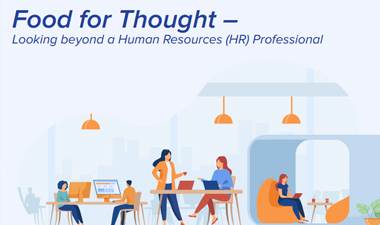Ouch and Ouch! Being a consultant and HR professional for most of my career, the two roles that I have been undertaking has been ranked as the Top 5 non-essential jobs by The Sunday Times.
The HR function or more recently, the Human Capital function is an 18th century invention in the wake of the industrial revolution. It started as a personnel department, focused on hiring and dishing out the daily wages to those who did a day’s work. It evolved overtime to take on administrative roles that the Towkay’s could not be bothered to manage. HR than morphed into an employee training department and by the 20th century, government and organisations began to realise that employee satisfaction affected employee retention and productivity.
The simultaneous changes and progress of technology and society led to the HR department that we know today, Compensation & Benefits Design; Talent Acquisition & Leadership Development; Organisation Design and Transformation; Workforce Transition and Development etc and, as well we are tasked to navigates the difficult social and cultural issues between employees and management.
An efficient human resource department is a neutral bridge between business leadership and the general employee population. Creating an HR department that can maintain a neutral position as both an employee and business advocate can be a difficult balancing act.
Indeed a difficult balancing act but no doubt an important one and perhaps, there are some truths as to why amongst the 1000 people survey, HR has been ranked as the 2nd last most desired profession by this publication. I remembered that I once interviewed a candidate for a HR executive position whilst working in the finance industry and towards the end of the interview, the candidate asked me if I had any openings in investment banking or private banking, her reason for asking – ‘Because she heard from her peers that being an investment or private banker was a glamourous role and these jobs paid a lot more money.’
Being a HR professional, it is not about just about fame and fortune. It requires lots of patience and a keen ear to understand the pain points of our employees whilst that of the organisations. As a young HR consultant, I had the opportunity to travel widely to far flung places like Pakistan and East Africa. Whist in Pakistan, I was asked to design a job and salary structure and I was challenged by the business leader over a US$1 increase in wages for their manufacturing floor employees. I remembered, I fought hard for that US$1 increase as I realised that for US$1, it meant that a father or mother was able to send their children to school for a month, had enough to get three warm meals and meant that the family need not go to bed hungry and still had some savings left. It was not just about a salary benchmarking exercise; it was also being able to influence organizational leaders to lead with a sense of compassion, to be able to influence the organisation to look beyond the profits and provide a deeper sense of purpose of the organisation and its existence.
Being a HR professional, it is not about just about fame and fortune. It requires lots of patience and a keen ear to understand the pain points of our employees whilst that of the organisations. As a young HR consultant, I had the opportunity to travel widely to far flung places like Pakistan and East Africa. Whist in Pakistan, I was asked to design a job and salary structure and I was challenged by the business leader over a US$1 increase in wages for their manufacturing floor employees. I remembered, I fought hard for that US$1 increase as I realised that for US$1, it meant that a father or mother was able to send their children to school for a month, had enough to get three warm meals and meant that the family need not go to bed hungry and still had some savings left. It was not just about a salary benchmarking exercise; it was also being able to influence organizational leaders to lead with a sense of compassion, to be able to influence the organisation to look beyond the profits and provide a deeper sense of purpose of the organisation and its existence.
To be a HR professional, it requires lots of passion, it requires us to listen and to understand others and not jumped to conclusion. At times, what we see is not the real picture and it requires us to learn more about a situation before being able to offer the right solution. I recalled that I was once asked by my peer to seek a voluntary resignation of a ‘non-performer’ during our annual performance cycle and after interviewing this ‘non-performer’ and listening attentively to the issues, I found out that this employee had recently been diagnosed with diabetes and was finding it hard to adjust to his insulin jabs that resulted in low energy and further, his mental health was also greatly affected due to this medical discovery. Together with his supervisor we agreed to monitor the employee’s performance and all I can say that it ended-well for everyone.
Our war stories will never be as glorious as putting multi-billion dollar deals together, nor be published in the press nor win any Nobel Peace prize. We do not yearn to be highlighted as doing great things. Our HR professional war stories are always at the back of house, though in more recent times, especially during this pandemic, we have been tasked and thrust to the front to keep our employees save, to try to save as many jobs as possible, working alongside the management as part of the task force to redesign roles, to look into reskilling and retraining our workforce, to look into how technology can make work more pleasant and more fun for you.
We are dealing with people and the only consistent aspect of people is that, it is always an exciting day as there are so many variables. So, if you want a consistent job with little variables, being a HR professional is definitely not your cup of tea.
Lastly, calling for all HR professionals to come forth and share your war stories, reasons why you are in your role, what have kept you in the role etc. ? @The Sunday Times/ The Straits Times may find it worthwhile to write a piece to provide justice to the “unglorified and silent HR Profession”.
Best,
Alvin Goh
Executive Director, SHRI







